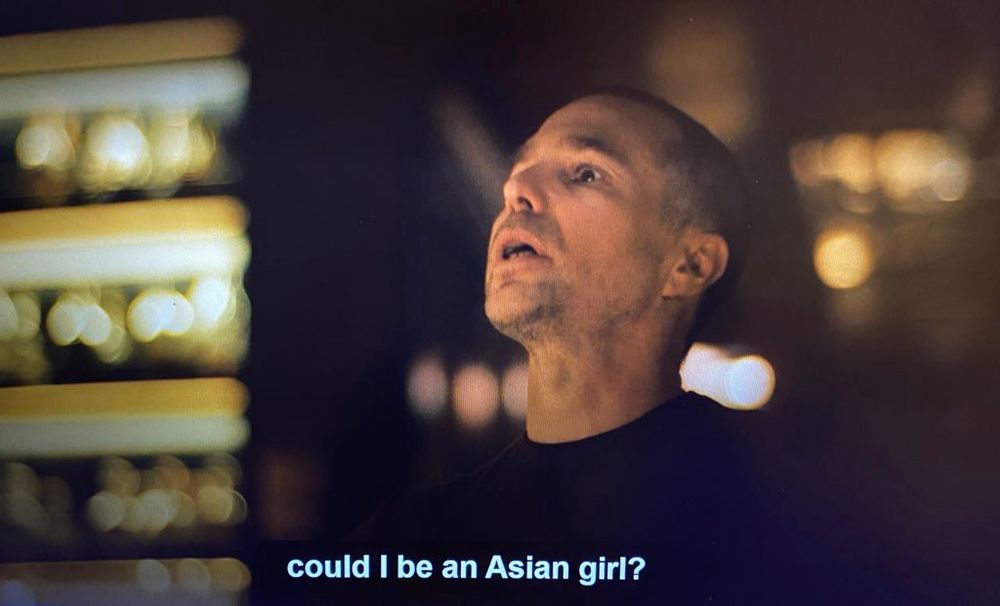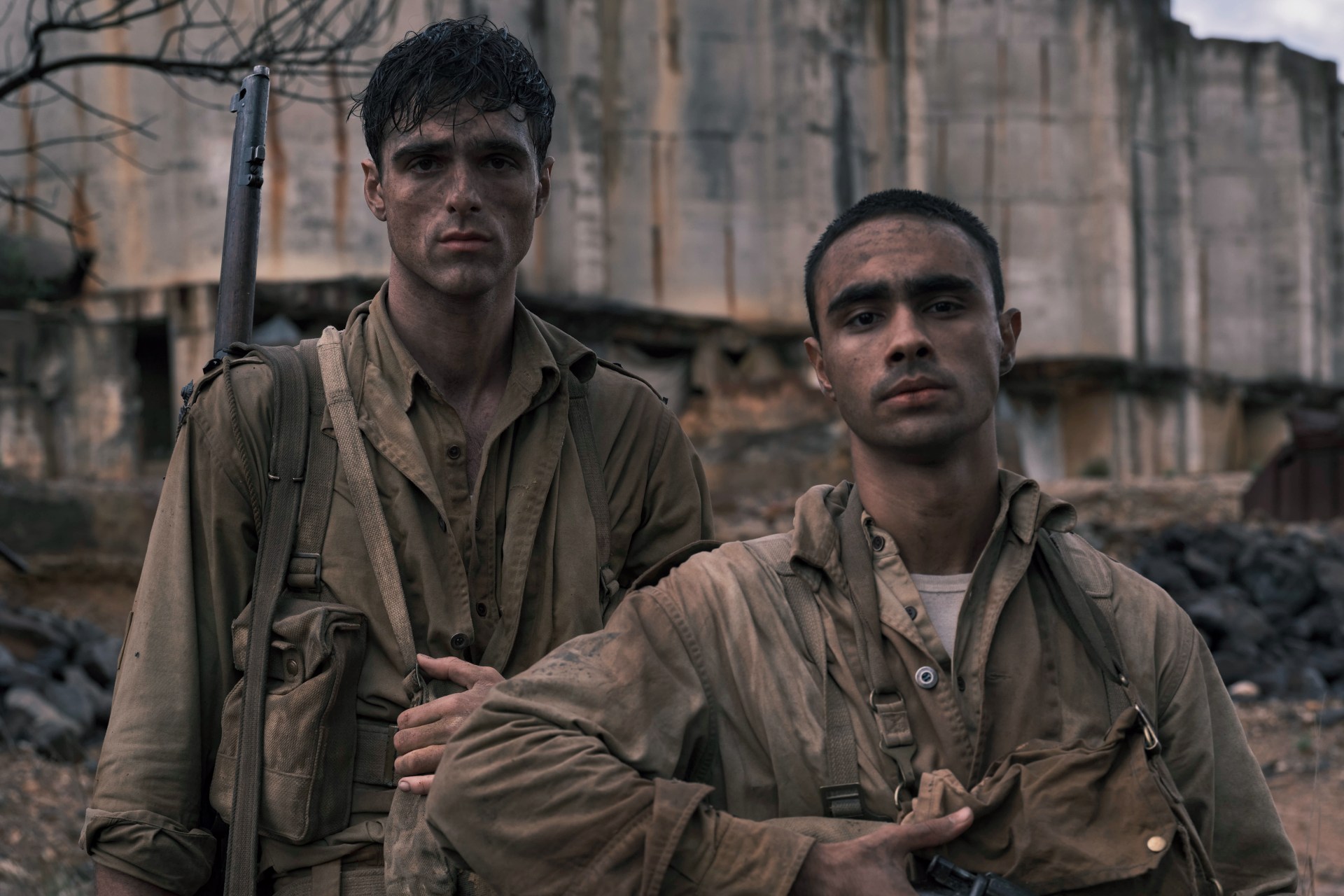Tuesday April 22, 2025
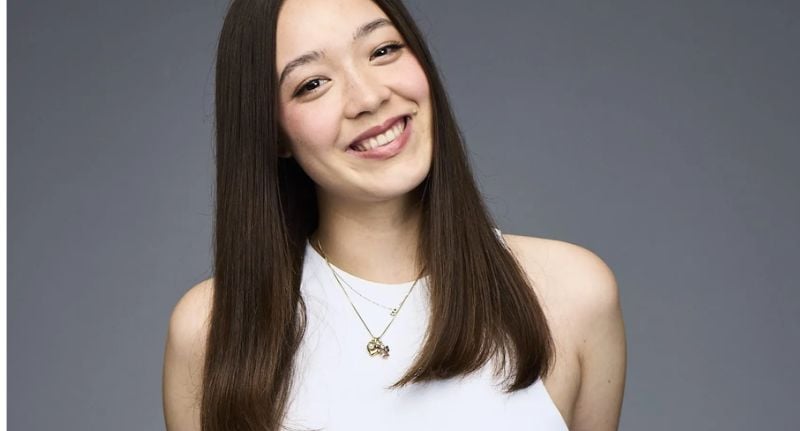
‘Tokenistic and backwards’: Backlash over ARN’s use of AI radio host modelled on Asian woman
The Australian Radio Network (ARN) is facing backlash after revealing that ‘Thy’ a weekday hip-hop host on Sydney’s CADA station, is an AI-generated persona, one modelled on an employee believed to be from the network’s finance department.
Created in partnership with overseas voice cloning giant ElevenLabs, Thy has been broadcasting four-hour segments on digital radio for approximately six months without any disclosure that she is artificial.
Questions of Diversity and Representation
Journalist Stephanie Coombes was the first to voice concerns in her newsletter, The Carpet, highlighting the troubling irony of the network seemingly showcasing an Asian presenter who turns out to be an AI creation.
Coombes went on to question the decision-making process of the four men reportedly behind the AI’s script and online persona.
She writes: “ARN has a very white on-air talent lineup. How white? Well, I looked through the host lineup for KIIS, GOLD and CADA – ARN’s three major radio brands which broadcast around the country. Across nine stations, it seems that there’s only one person who outwardly presents as diverse.”
That person is Thy.
Coombes goes on to ask: “Did one of the biggest FM radio companies in the country invent an Asian woman rather than… hiring someone who was Asian?”.
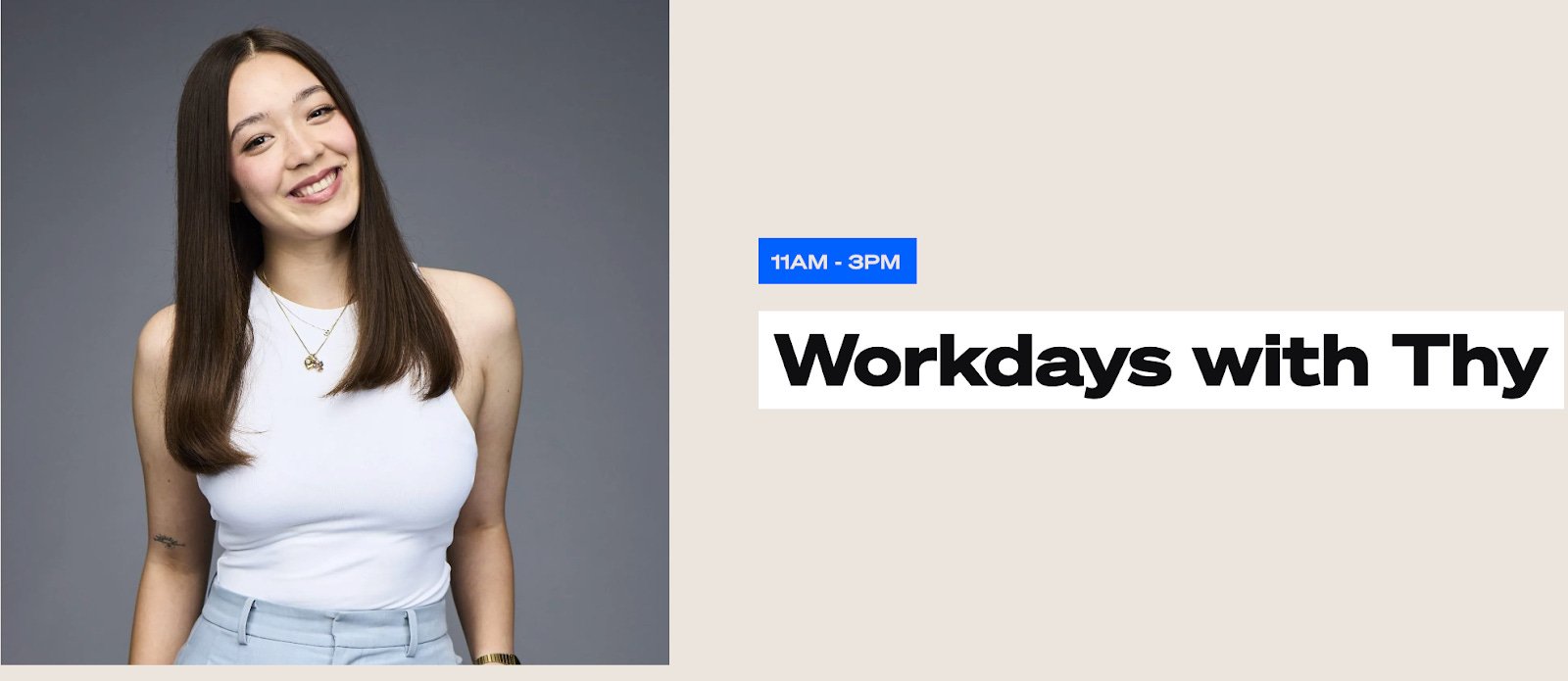
Thy, CADA’s AI workday host.
Who is Thy?
Thy’s voice and likeness are based on a real ARN employee who, according to Coombes, works in the company’s finance department.
Mediaweek is aware of the name of the employee but has chosen not to print it.
However, when the question of identity was posed to ARN, the company responded that “it’s not just her (Thy’s) likeness being used: Thy is her name, it’s her actual photo, and her real voice that has been cloned. She is very much involved in this trial”.
Despite several attempts, the company is yet to respond to Mediaweek’s request for clarification on whether or not the finance employee was paid for her participation.
The trial
In a statement to Mediaweek, ARN defended the experiment stating they are “always exploring how new technology can support great content and enhance the listener experience.”
The statement continued, “As part of this, we’ve been trialling AI audio tools on CADA using the voice of Thy, an ARN team member. This is a space being explored by broadcasters globally, and while the trial has offered valuable insights, it’s also reinforced the unique value that personalities bring to creating truly compelling content.”
So far, digital, product and technology leader Fayed Tohme has been the only ARN staff member to publicly associate himself with the trial.
In a since deleted LinkedIn post, Tohme celebrated the project, boasting that Thy “sounds real” and “has fans,” despite having never set foot in a studio.

ARN has chosen not to release the names of other staff members involved in the trial – specifically those tasked with writing the script for Thy to read on air.
Diversity and representation
Teresa Lim, the vice president of the Australian Association of Voice Actors, has strongly condemned ARN’s actions.
Speaking to Mediaweek, Lim expressed deep concern for the trial, questioning whether the employee was properly informed, consented with full understanding, or fairly compensated.
“Has she even signed the AI waiver because they’re cloning her voice?,” she said. “I think it’s a real concern, because she’s not in a position to make an informed decision.”
Lim further highlighted the insult to the Asian broadcasting community, particularly Asian women who have fought for greater representation in Australian media.
“If it is true that it’s four blokes who are actually posing as her online, then that is a real insult to the Asian broadcasting community… this feels like a massive step back,” she asserted.
A still from The White Lotus in which actor Sam Rockwell recites a now infamous monologue detailing his journey to self-discovery, which involved him cos-playing as an Asian woman.
Lim described the move as “tokenistic,” questioning the specific choice to make the AI persona Asian and suggesting it was a superficial attempt to appear diverse without genuine inclusivity.
“It’s so tokenistic. I do wonder why, when these blokes sat down and decided to create a fake personality, did they make her Asian? Was that a specific choice to look diverse without doing anything?” she said.
What disturbs Lim most is the sense that the network is using the illusion of representation without actually committing to it.
“When you look at their website, their presenters don’t look very diverse.
“I’m deeply offended, and I’ve spoken to the Asian broadcasting community and they are horrified. An opportunity for representation on a major radio network has turned out to be completely fake,” Lim said.
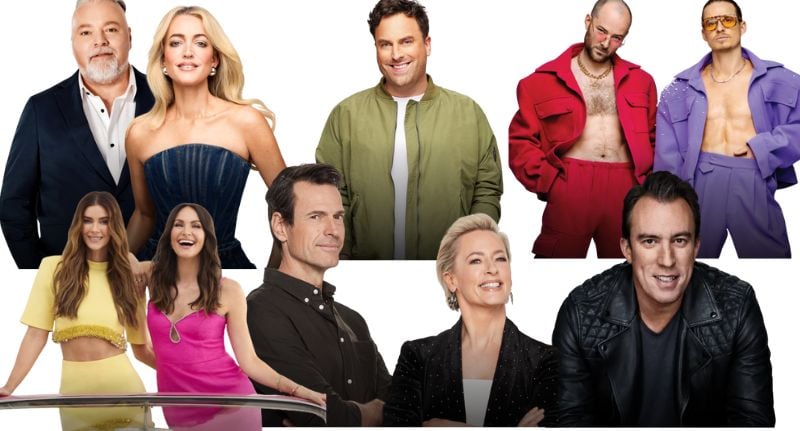
In a letter to shareholders earlier this year addressing WGEA’s gender pay gap report, ARN stated it was “active in creating an inclusive workplace, as recognised in the Diversity Council of Australia’s (DCA) Inclusive Employer Index. ARN is also committed to the continuous development of a diverse, inclusive, equitable and constructive culture – where all people have access to broadly equal opportunities and outcomes.”
While Australian companies are not required to join DCA, ASX-listed companies are expected to establish and disclose diversity policies with measurable objectives for gender diversity, or explain why they have not done so.
However, despite being pressed several times by Mediaweek to provide details on ARN’s diversity quota, the company chose not to respond.
Lack of transparency
Lim also criticised ARN’s lack of transparency with its listeners, emphasising the need for clear disclosure that Thy is AI.
“They should have been upfront and completely honest, disclosing that the radio host was an AI… people have been deceived into thinking it’s a real person because there’s no AI labelling,” she argued.
The ethical implications also extend to control and consent. What if the real ‘Thy’ were to disagree with what the AI persona is saying, Lim argues.
“She’s basically a puppet. They can make her say and do anything. She doesn’t have the option to walk away like a real host. She’s stuck in their system,” Lim said.
The decision also has implications for voice artists working in the industry, many of whom, like Lim, were unaware of ARN’s partnership with ElevenLabs and now fear their own voices may be used without proper consent.
“I voice ads for ARN, numerous ones, but there’s never been any conversation or transparency about whether my voice has been fed into ElevenLabs.”

Teresa Lim, the vice president of the Australian Association of Voice Actors.
Ethical implications
While Lim acknowledges that AI has a place in media, she says the industry must be held to account when it crosses ethical lines.
“What we’re all saying about AI is that it can be great, and it is great in many areas. But this is one of those clear examples where it’s not great. This is a misuse of AI.”
Lim is calling for two urgent steps: a public apology from ARN for failing to disclose Thy’s artificial nature, and immediate labelling of all AI-generated programming.
“They’ve been doing this in secret for six months. Not two weeks. Not a pilot. Six months.
“At the very least, if it really is four men pretending to be an Asian woman, then every time that voice goes to air, there needs to be a clear disclaimer: this is AI. She is not real,” she said.
Coombes agrees writing: “As a matter of urgency, there needs to be some reform to ensure that the media discloses when content has been produced, in part or wholly, using AI”.
ARN has a publicised enterprise agreement with AI speech generation company ElevenLabs
Mediaweek has approached Diversity Council Australia for comment.

Tara Ford, Seamus Higgins, Aimee Buchanan among Australian judges at Cannes Lions 2025
Tara Ford, Seamus Higgins and Aimee Buchanan are among the nine Australian creative leaders who have been selected to join the international jury for this year’s Cannes Lions International Festival of Creativity – celebrating creative excellence in advertising and marketing.
The Australian jurors have been chosen for their world-class expertise and work and will sit alongside a global line-up of industry trailblazers to assess the year’s most groundbreaking ideas, awarding the Lions that set the global standard for creative effectiveness.
Tony Hale, CEO of Advertising Council Australia, said: “Cannes Lions continues to set the global benchmark for creativity, and it’s an honour to see Australian talent shaping that standard.
“Our jurors are not only influencing the future of creativity on a world stage — they’re showcasing the innovation, bold thinking, and cultural leadership that make Australia one of the most exciting creative markets globally.”
Australian Jury members of Cannes Lions 2025:
• Tara Ford, Chief Creative Officer, Droga5 ANZ & Accenture Song, APAC: President Brand Experience & Activation
• Seamus Higgins, Chief Creative Officer, R/GA: Creative Business Transformation
• Mim Haysom, Executive General Manager, Brand & Customer Experience, Suncorp Group: Creative Data
• Alison Tilling, Chief Strategy Officer, VML ANZ: Creative Strategy
• Pip Smart, Executive Producer/Partner, Revolver: Film Craft
• Esther Clerehan, Founder, Clerehan: Glass: The Lion for Change
• Tara McKenty, Chief Innovation Officer and Co-ECD, AKQA: Innovation
• Aimee Buchanan, Chief Executive Officer, GroupM: Media
• Dave Bowman, Chief Creative Officer, Publicis Groupe ANZ: Social & Creator
“The Cannes Lions Awarding Jury plays a vital role in setting the global benchmark for creative excellence,” Simon Cook, CEO of LIONS, said.
“This year’s line-up brings together some of the most highly respected and accomplished industry talent from around the world. Their expertise will help define the creative standards that continue to drive our industry forward and spotlight the power of creativity as a catalyst for meaningful business growth and transformation.”
Last year, Australia ranked 11th globally at the 2024 Cannes Lions International Festival of Creativity, securing a total of 18 Lions: 2 Grand Prix, 5 Silver, and 12 Bronze.
View the full line-up of global jurors here.

‘Dear friends, followers and haterz’: Nandini Jammi steps down from Check My Ads
Nandini Jammi has announced she is stepping down from her role at Check My Ads Institute, the non-profit watchdog organisation she co-founded.
Jammi took to LinkedIn to share the news writing: “I’d like to announce with enormous pride that I am stepping down from my role at Check My Ads.”
She added in her post, “It’s time for me to hit the road. I’m a marketer at heart. I feel most alive when I’m bringing new ideas into the world, changing hearts and minds and helping people feel empowered.”

The logo from Check My Ads
From newsletter to industry watchdog
Founded alongside Claire Atkin, Check My Ads was established to bring greater transparency and accountability to the digital advertising landscape.
With a mission to address harmful practices that affect both advertisers and consumers, the organisation has become a critical voice in reshaping the Adtech sector.
“When we launched Check My Ads Institute in late 2021, we envisioned a grassroots advocacy organisation that would hold the digital advertising industry accountable for running your ads in places you don’t want them, without your knowledge,” Jammi reflected in her post.
The non-profit’s work has not only exposed the “shady trillion-dollar ecosystem” but has also been pivotal in the fight for a fairer and more transparent advertising marketplace.
“We’ve exceeded those expectations. Today, Check My Ads is now entering a new chapter of its mission: building a truly transparent advertising marketplace,” Jammi said, acknowledging the team’s collective efforts in driving systemic change.

Check My Ads founders Nandini Jammi and Claire Atkin
A new chapter ahead
As Jammi prepares to move on, she expressed pride in the organisation’s progress and future.
“In 2019, Claire Atkin and I started a newsletter to share the shocking things we were learning about the adtech industry. Today, Check My Ads has become the industry’s indisputable watchdog, led by a dogged team that shares our commitment to broad, systemic change,” she noted.
Jammi ended her post announcing that her “last day at Check My Ads will be May 31st. Moving forward, the team is in capable hands, my business partner Claire is at the helm and I trust her to take Check My Ads to the next level, and many levels after that.”
Pictured: Nandini Jammi
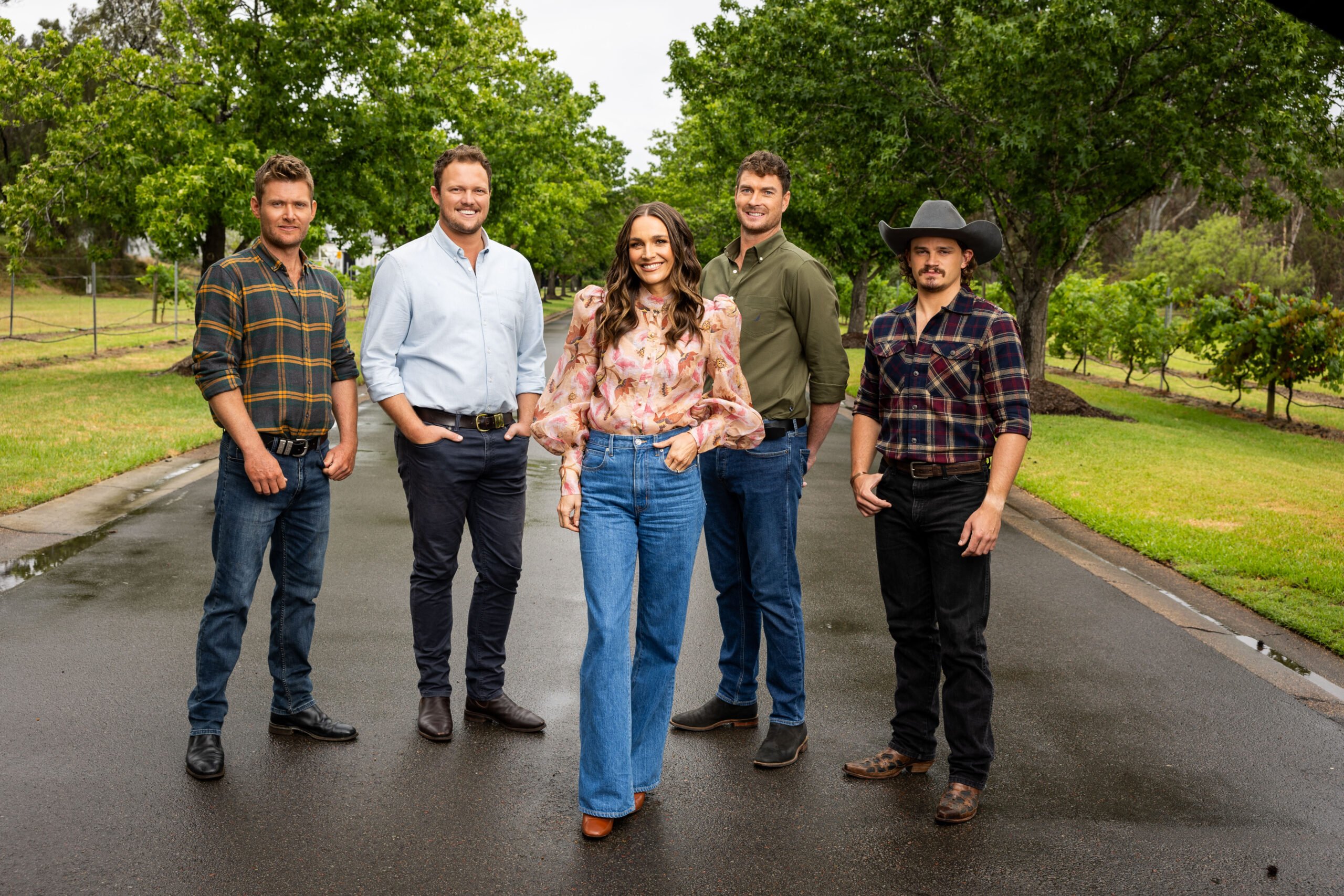
Farmer Wants a Wife executive producer reveals major twist in show
Seven’s hit reality series Farmer Wants a Wife is back on 21 April, and this season comes with a headline-making twist.
Executive producer Sylvia D’Souza confirmed the unexpected twist that one of the farmers leaves the series midway through production, dramatically altering the course of the season, but there’s still a successful outcome.
“All the farmers in this season find love. Was it easy? Probably not… We’ve had two women walk out after 24 hours on the farm, and one farmer quits halfway through.”
Despite the dramatic exits, D’Souza insists the show remains grounded in authenticity: “We don’t need to manufacture the show, there’s plenty in real life to draw from. But yes, it was tense.”
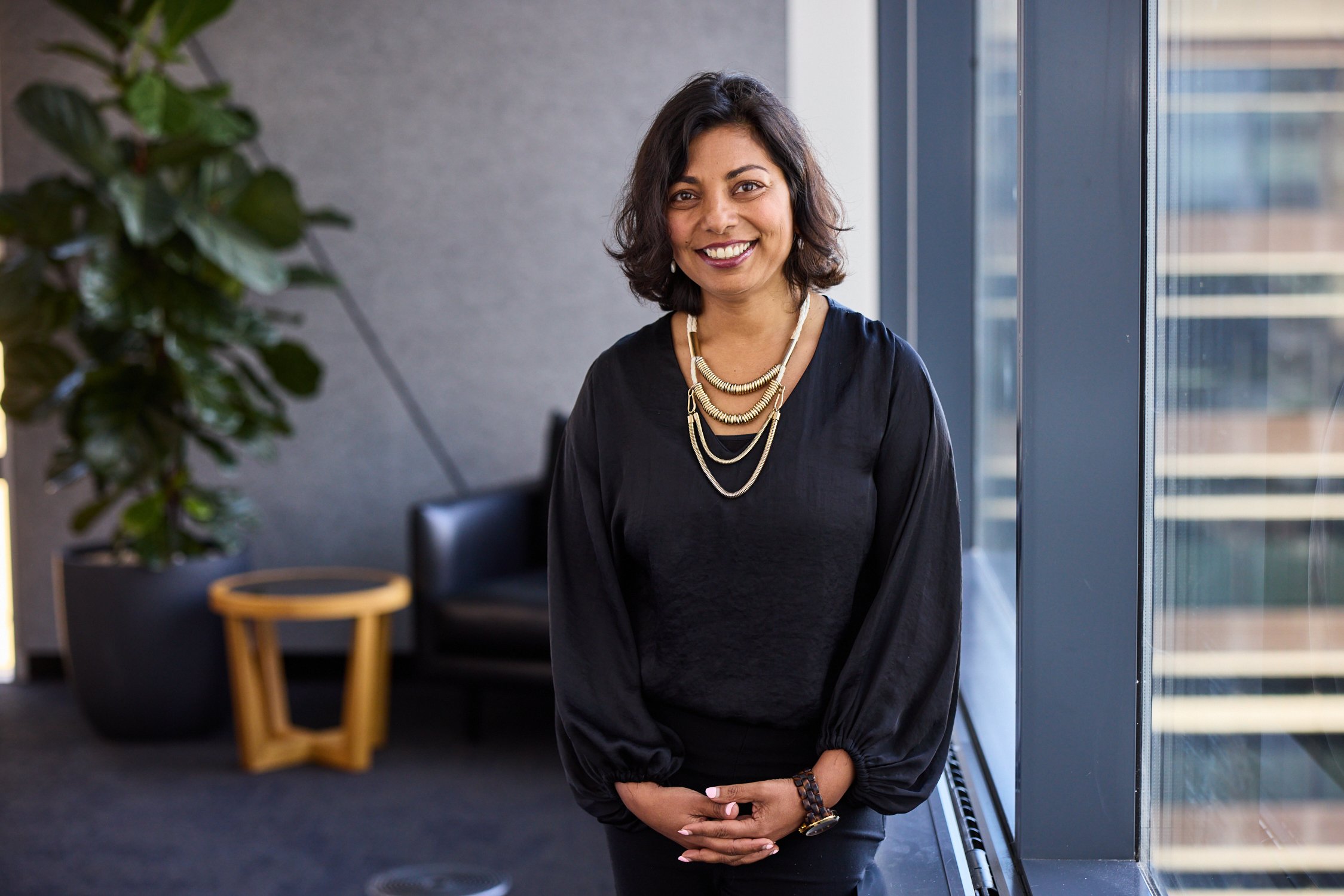
Sylvia D’Souza
A format that sells ‘real love’
While drama inevitably unfolds, the show’s heart remains in its celebration of genuine relationships.
“It is one of the few shows that has real love,” said D’Souza. “Look, I say real love, and lots of people go, ‘No, no, it isn’t,’ but the results speak for themselves. These people are still together.”
It’s this sincerity D’Souza said, that makes Farmer Wants a Wife a trusted destination for brand integrations.
“We always discuss with the brands, how can we do it in the most genuine way?” she added. “What are the products that we can integrate in a way that feels natural for the farmers and the ladies to use?”
Brands, like Norco, are a natural fit: “They’re all about the farmers, so it was just seamless, ice cream on dates, cheese, milk for breakfast,” she explained.
The show’s female-skewing audience also invites partnerships with health and beauty brands.
D’Souza said the sales team “had requests for chemist products, makeup and so forth … stuff women use all the time, and our audience is so targeted to women, it was an easy sell”.
A growing broadcast and streaming powerhouse
Now in its 13th season, Farmer Wants a Wife continues to deliver strong numbers across Seven and 7plus.
“Over a million Australians watch this show,” said D’Souza. “Last series we had two million viewers every single episode. It won its time slot every single night.”
The show’s cross-generational appeal is part of the magic: “You can watch it with your parents, you can watch it with your kids. It’s not offensive… it’s like going to a wedding, and who doesn’t like going to a wedding?”
D’Souza believes the show’s wholesome tone resonates in a fatigued media landscape. “Ultimately, people are a little bit over the cynicalness of the world. So they come to Farmer where it is wholesome. It’s just a bit of love and peace.”
Finding farmers and commitment
Casting remains a complex task, especially with real farmers.
“It’s not like there’s this huge vast pool we can choose from. It requires their mothers, their sisters to dob them in,” D’Souza explained. “It’s hard because they have a full-time job on their farm… but we get there.”
And even with that effort, producers can’t predict what will happen when the cameras roll. “As a producer, when that [a farmer quitting] happens, it’s about keeping calm and knowing that everything will work out.”
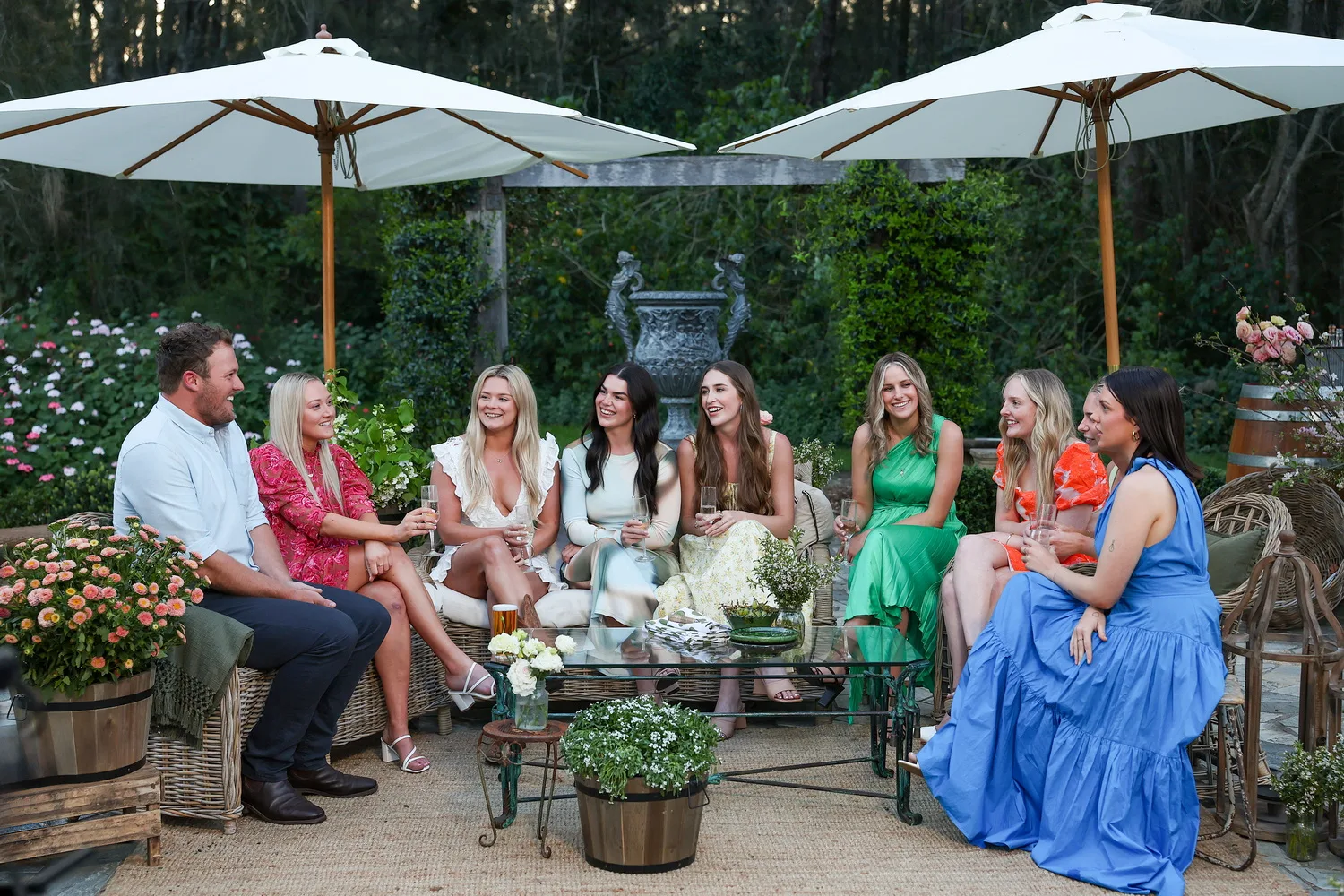
An evolving format
Despite its legacy, 11 marriages, 27 babies, countless romances and counting, Farmer Wants A Wife continues to evolve. “It’s one of the dream shows at Seven,” D’Souza said. “It’s big on broadcast, big on streaming, still growing across the board”.
And while this season brings high-stakes emotion, brand integration, and strong audience growth, the core remains unchanged. “Farmer is about love. We don’t need the other reasons. There’s already a natural drama when it comes to finding love.”
Farmer Wants a Wife premieres Monday, 21 April on Seven and 7plus.
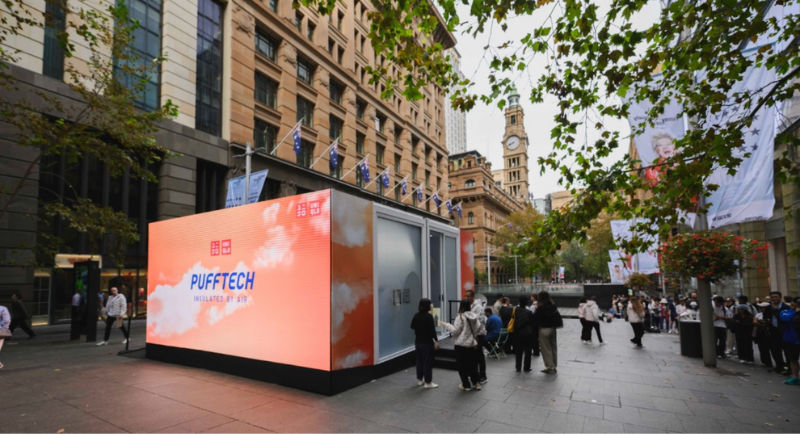
Uniqlo launches PuffTech range with an immersive exhibition in Martin Place via 1000heads
Uniqlo unveiled its PuffTech jacket range with an activation in Sydney’s Martin Place, executed by 1000heads.
The PuffTech Insulated by Air Exhibition was an immersive exhibition that transformed a bustling CBD landmark into a dynamic brand experience.
The Japanese fashion brand used LED displays to showcase PuffTech jackets floating through virtual clouds—a bold visual metaphor for the collection’s ultra-lightweight warmth and cutting-edge insulation technology.
Uniqlo’s interactive experience
Earlier this month, exhibition visitors engaged with the PuffTech innovation through three uniquely curated zones; Feel – getting hands-on with the fine, air-trapping fibres that create comfort and warmth, Learn – understanding the six key features and science behind its insulation, and discovering styling inspiration. Rounding the experience was a fun cloud-filled photo opportunity to share on social media.
Visitors had the chance to receive a PuffTech jacket, and those who shared their PLAY zone photo on Instagram Stories and were entered into a draw to win a $1,000 UNIQLO voucher.
The social transformation agency also partnered with Uniqlo to develop scroll-stopping social content that built awareness for PuffTech. Iconic Australian landmarks like the Sydney Harbour Bridge and Flinders Street Station were visually “wrapped” in PuffTech to spark curiosity and drive engagement ahead of the activation.
In addition, 1000heads created custom content for Uniqlo’s influencer partners — including whimsical, sky-floating visuals that brought PuffTech’s lightness to life. These videos resonated strongly with each creator’s audience, generating excitement and further reach.

Exhibition visitors engaged with the PuffTech innovation through uniquely curated zones. Tahe experience was rounded out by a fun cloud-filled photo opportunity to share on social media.
Continued collaboration with 1000heads
The PuffTech Insulated by Air Exhibition marks another standout partnership between UNIQLO and 1000heads, following the successful UniqloUT Experience at Pitt Street Mall last year. That activation showcased the brand’s UT sub-line of graphic T-shirts, developed in collaboration with renowned artists, designers, and pop culture icons.
“The PuffTech campaign seamlessly blended cutting-edge digital and AI innovation with a tactile brand experience that educated and inspired Uniqlo’s customers,” Mark Lloyd – 1000heads group account director, said.
“This campaign was a powerful example of 1000heads’ multi-pronged approach—keeping social at our core while pushing the boundaries of tech innovation,” he added.
James Chan – Uniqlo campaign marketing manager said: “1000heads brought the PuffTech campaign to life seamlessly — from concept to consumer. The response was incredible, and visitors loved the immersive experience.
“It was a unique and exciting way to showcase our latest innovation, while giving people the chance to truly learn about PuffTech’s technology in an engaging setting.”
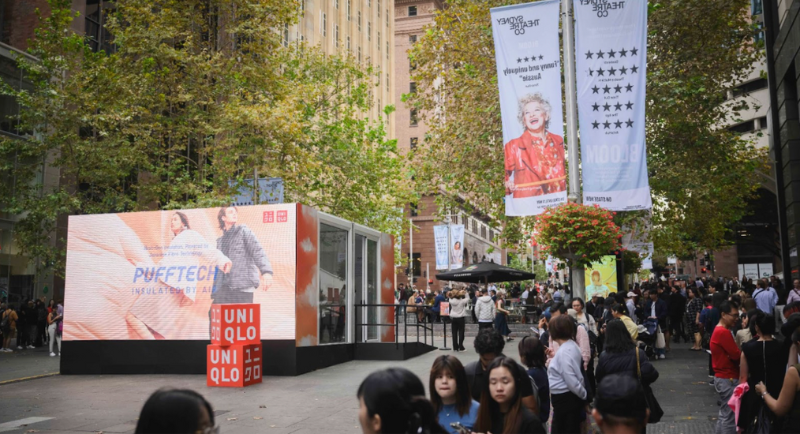
James Chan: ‘1000heads brought the PuffTech campaign to life seamlessly — from concept to consumer. The response was incredible, and visitors loved the immersive experience.’
CREDITS
Social Transformation and Creative Agency: 1000heads
Fiona Harris – General Manager
Mark Lloyd – Group Account Director
Daniel Koublachvili – Creative Technology Director
Luke Stevenson – Technical Director
Javier de Guzman – Account Manager
Ameer Mohsin – Studio Manager
Christel Chong – Senior Creative
Wendy Huynh – Senior Designer
Roheeth Jayakumar – Videographer
Desmond Tan – Animator
Brad Healy – Motion Designer
Set builders: Alchemy Co Set Builder
Charlie McDonald – Logistics Manager
Emily Lloyd – Project Manager
Anthony Shone – Production Manager
UNIQLO
Sherry Li – Head of Marketing and PR
James Chan – Campaign Marketing Manager
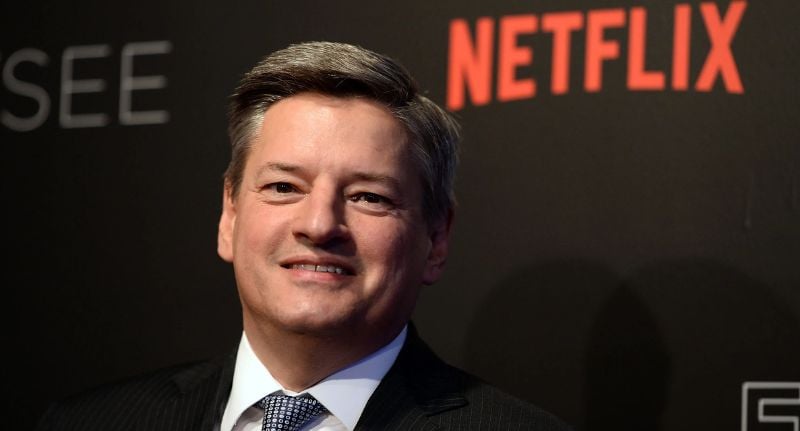
Netflix eyes podcasters as the new content creators
Netflix is expanding its content offering, with co-CEO Ted Sarandos revealing the streaming giant is actively exploring new types of content and creators.
According to Caitlin Huston in The Hollywood Reporter, the suggestion was made during Netflix’s first-quarter earnings call.
The publication reports that Sarandos noted that as the popularity of video podcasts grows, there is potential for some of these shows to find a home on the platform.
“As the popularity of video podcasts grow, I suspect you’ll see some of them find their way to Netflix,” Sarandos said in response to an analyst’s question.
The shift would be a significant milestone for Netflix, which has already ventured into podcasting through shows related to its original content and talent.
Netflix’s current podcast offerings
The streaming giant has already started making its own mark in podcasting.
The company’s ‘Now on Netflix’ podcast, in collaboration with Tudum.com, provides fans with exclusive behind-the-scenes content, including news on upcoming releases and in-depth looks at new premieres.
Alongside this, ‘Skip Intro’ hosted by Krista Smith, delivers weekly conversations with key figures behind Netflix’s most popular shows, films, and documentaries.
Additionally, Netflix offers ‘We Have the Receipts,’ a bi-weekly podcast hosted by Chris Burns that delves into Netflix’s unscripted reality shows.
Then there’s ‘Real Stories,’ with Rebecca Lavoie where she interviews creators and subjects behind Netflix’s major documentaries.

A shift towards video podcasts
While Netflix has traditionally shied away from the podcasting format, the statement from Sarandos suggests that video podcasts are now officially on the company’s radar.
Sarandos added that Netflix’s business model, designed for premium content, could provide a valuable opportunity for podcasters to reach a wider audience and reduce risks associated with user-generated content models seen on platforms like YouTube.
“We’re looking for the next generation of great creators, and we’re looking everywhere,” Sarandos said.
The streaming giant’s push into podcasting aligns with its ongoing effort to diversify content offerings while keeping its focus on quality and premium storytelling.
This also includes tapping into podcasting talent, with the company reportedly making attempts to sign high-profile stars, such as ‘’Call Her Daddy’ host Alex Cooper, although she eventually signed with SiriusXM.
Given the lower production costs of podcasts compared to Netflix’s high-budget shows, video podcasts could be an attractive area of growth for the company.
This move is expected to further diversify Netflix’s portfolio, potentially adding a new layer to its already extensive offering.
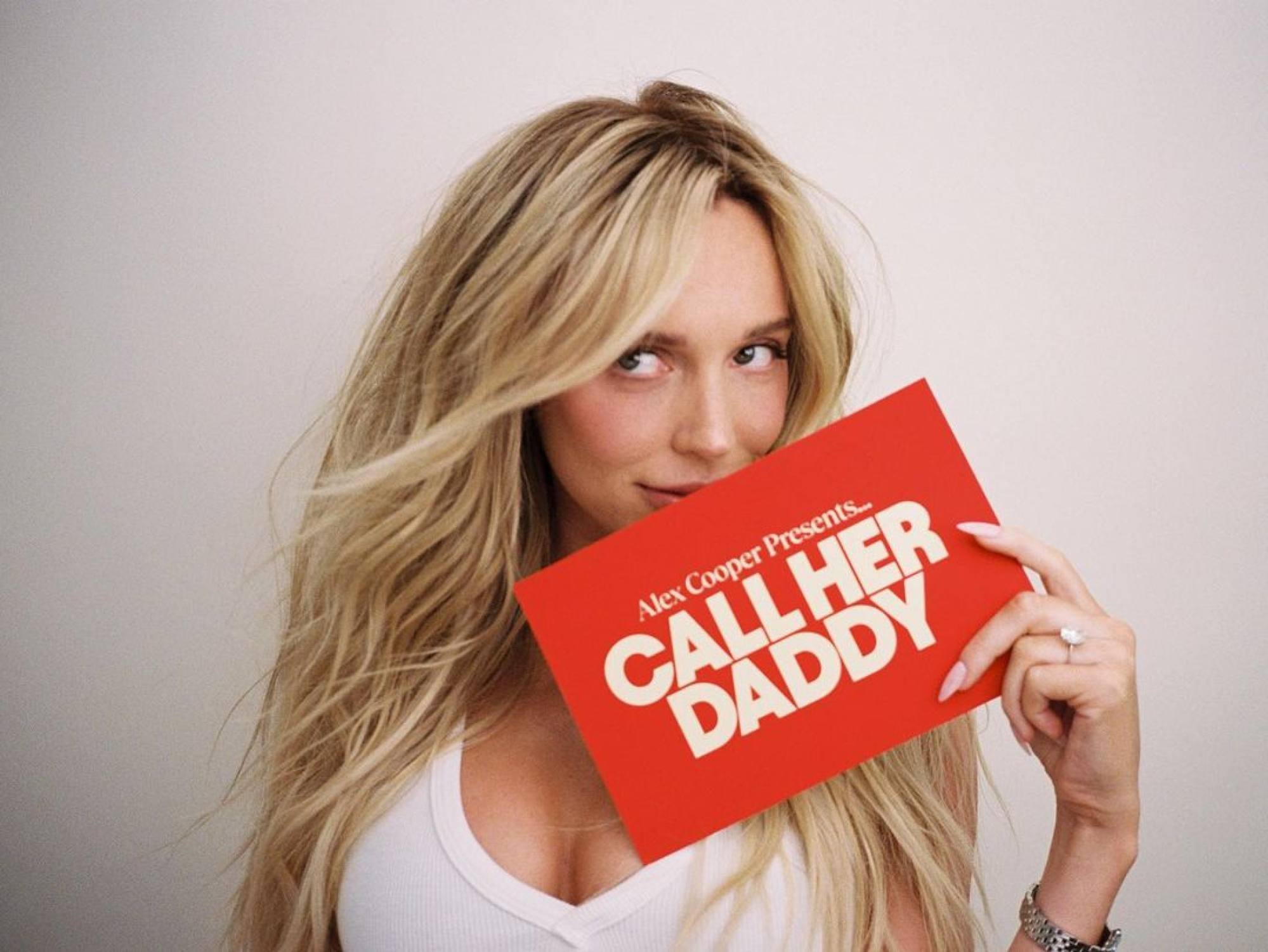
Call Her Daddy host Alex Cooper
Down Under giant
Locally, the move would only help solidify the company’s Australian standing.
According to market researcher Ampere Analysis,Netflix is on track to become Australia’s third-largest ad-supported streaming service by 2027.
The report predicts the global streamer will pull in over $150 million in ad revenue that year. Only 7Plus and 9Now, both broadcaster-run platforms, are expected to generate more from advertising.
According to the latest JustWatch insights, Netflix remains the leader in the SVOD (Subscription Video on Demand) market holding a solid 25% of the market share in Q4 2024.
But this dominance isn’t unchallenged. Amazon Prime Video, now a strong contender, holds a 5% advantage over Disney+. Meanwhile, local streaming services Binge and Stan are gaining ground, collectively claiming a 20% share of the market, just 2% behind Amazon Prime.
The streaming giant’s ability to secure the #3 spot in Australia’s ad-supported streaming market will largely depend on how well it can increase demand for ad space. Right now, ad prices are set higher than the market average, and the platform is maintaining this by keeping ad loads low.
Pictured: Netflix co-CEO Ted Sarandos
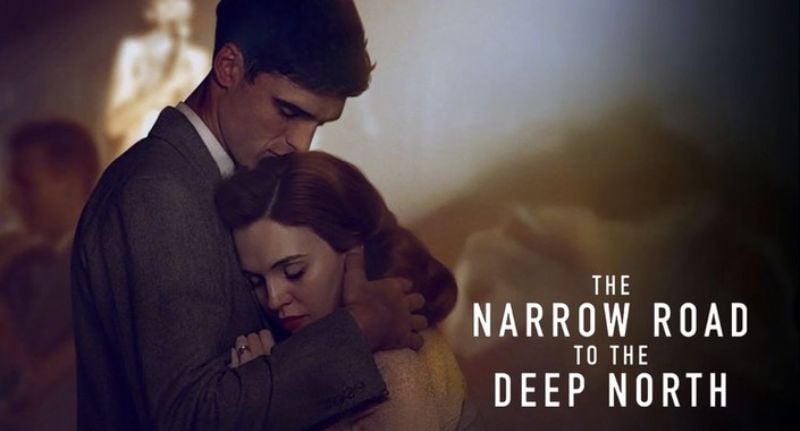
Epic, emotional and Australian: Prime Video’s The Narrow Road to the Deep North is a defining moment for local drama
When Richard Flanagan’s The Narrow Road to the Deep North first landed in bookshops in 2013, it was heralded as a literary triumph, an intricate, deeply felt portrait of love, memory, and the scars of war.
More than a decade later, its screen adaptation arrives with a similar ambition: to move, to confront, and to connect.
Now out on Prime Video, the five-part limited series is both sweeping in scope and intimate in its emotional depth.
Directed by Justin Kurzel (Nitram, Macbeth) and adapted by Shaun Grant (True History of the Kelly Gang), it follows Lieutenant-Colonel Dorrigo Evans (played across time by Jacob Elordi and Ciarán Hinds) through three defining periods of his life, his days as a war hero and surgeon, his memories of a brief but life-altering love affair, and his time as a prisoner on the Thai-Burma Railway.
It’s a towering piece of television, haunting, humane, and told with an urgency that feels both timely and timeless.
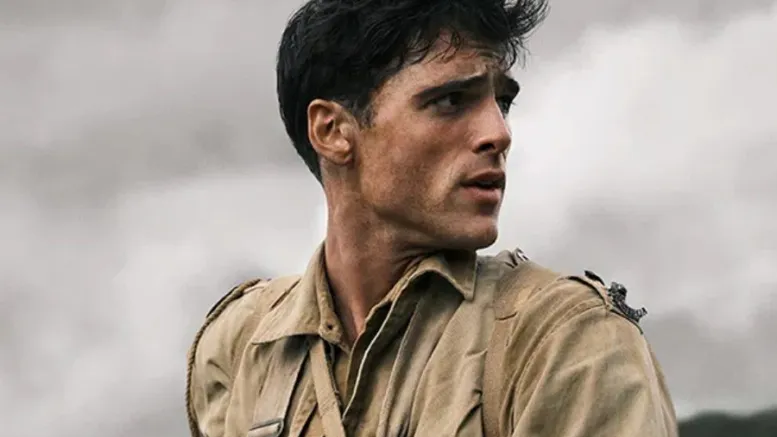
Jacob Elordi in a still for The Narrow Road to the Deep North.
A long road to the screen
The journey from page to screen was anything but straightforward. Jo Porter, now managing director at Curio Pictures, first secured the rights in 2017. Several years, and career changes, later, the project found new life in 2021, buoyed by the backing of Prime Video’s local originals team and executive producer Rachel Gardner.
“It wasn’t a linear journey,” Porter says. “It took eight years, shifting roles, and a lot of love left behind before it came back around. But once it did, it felt like serendipity.”
Jacob Elordi’s casting, announced at a time when his star was rising globally, was pivotal. “He was the right man at the right age,” Porter reflects. “It just clicked.”
A story that cuts across generations
While rooted in the past, The Narrow Road to the Deep North speaks to modern anxieties, about identity, legacy, and the quiet costs of survival. It’s a story that carries weight with those who know the book, but also surprises with its relevance to a younger audience.
“This is a story about young people facing enormous adversity,” says Sarah Christie, head of local originals Australia, New Zealand and Canada. “Casting Jacob Elordi wasn’t just about recognition, it was about truth. These were young men.”
The show’s tonal balance, literary and lyrical, yet grounded and accessible, gives it the kind of emotional breadth that’s increasingly rare in Australian drama. Kurzel’s signature style brings the grit; Grant’s adaptation brings the humanity.
A reminder of what local drama can be
Shot across multiple timelines and locations, the series spares little in its commitment to authenticity. The cast, which also includes Odessa Young, Olivia DeJonge, Simon Baker, and Thomas Weatherall, undertook significant physical transformations to reflect the lived experience of POWs.
“It wasn’t just a makeover,” Gardner says. “They put their bodies on the line to get it right.”
That dedication pays off. The result is a show that doesn’t just look impressive, it feels lived in, anchored by performances that simmer with restraint and vulnerability. Elordi, in particular, delivers a performance far removed from his pop culture persona: tender, raw, and deeply internal.
While The Narrow Road to the Deep North is very much its own story, it also arrives at a moment of quiet momentum for Australian screen storytelling. Prime Video has been steadily investing in local originals, from Deadloch to Top End Bub, and this series feels like the culmination of that growing ambition.
There’s also a broader sense of confidence in the creative partnership between platforms and producers. “It’s about trust,” Christie says. “We backed the team, and they delivered something that’s both epic and deeply personal.”
And although it will undoubtedly draw in viewers for its period setting, literary pedigree, or breakout stars, the series is ultimately doing something more subtle: reminding audiences, both here and abroad, of what Australian stories are capable of when given room to breathe.
“This is a story about survival,” says Christie. “About love that sustains us. And I think that’s something everyone can relate to, whether you lived through the war, read the novel, or discovered Jacob Elordi on TikTok.”
For longtime Flanagan fans, history lovers, or those coming to it completely fresh, The Narrow Road to the Deep North is essential viewing. It’s a quietly monumental work, and proof that Australian drama, when it trusts its voice, can leave a mark that lingers well beyond the final frame.

Elephant Room to spearhead The Salvation Army’s digital transformation
Elephant Room will work with the Salvos Stores, the retail arm of The Salvation Army Australia, to transform its digital and customer experience and engagement, and streamline its marketing operations.
The ecommerce performance agency will work with the Salvos Stores digital and customer experience teams to optimise online customer engagement and streamline their marketing operations.
The first stage of the partnership, set for completion in the coming weeks, includes migrating the Salvos Stores’ current email service provider, Active Campaign, to marketing automation platform Klaviyo, integrating its existing systems to enhance its customer data management and marketing automation capabilities.

Later this year, Elephant Room will focus on establishing a strong omnichannel framework for the organisation, facilitating a seamless data flow between in-store and online environments under Klaviyo’s architecture. This process will help improve customer segmentation for more targeted marketing.
The Salvation Army Australia is one of the nation’s longest-standing charitable organisations, helping Australians in need since 1880. Today, it offers a wide range of initiatives, including financial assistance, support for the homeless, alcohol and other drug services and more than 400 Salvos Stores, specialising in the sale of pre-loved goods.
The Salvation Army relies on public donations and fundraising activities to support its operations – all profits made from Salvos Stores and its annual Red Shield Appeal go to funding its critical programs and services.
“This project had some complex pieces, but the exceptional team at Elephant Room have broken down the complexity and made it possible for us to achieve our goals. Working with Elephant Room has been a dream so far, and we can’t wait to see what we accomplish together in the future,” Matt McMahon, Salvos Stores’ customer experience manager, said.
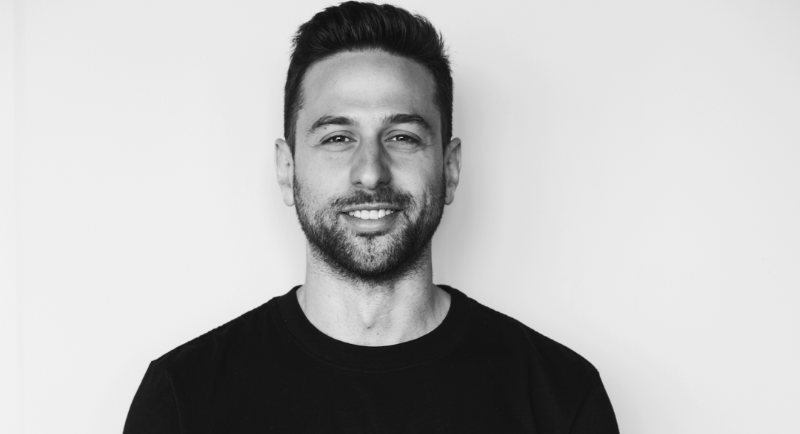
Adam Sharon-Zipser: ‘[The Salvation Army’s] digital platforms are a vital part of its fundraising and advocacy efforts, and it needs to have best-practice assets to ensure it maximises its operations.’
Adam Sharon-Zipser, Elephant Room founder, said: “We are delighted to be working with The Salvation Army team on this important project. The Salvation Army has a long history of helping Australians in need, providing essential services and support. Today, its digital platforms are a vital part of its fundraising and advocacy efforts, and it needs to have best-practice assets to ensure it maximises its operations.
“Our work will focus on enhancing efficiency by integrating smarter automation and data flow, while improving the customer experience through more personalised and targeted communication. We want to create a more cohesive, data-driven environment across the board, ensuring consistency across the organisation’s bespoke systems, including its point-of-sale, online, donation and volunteer assets.”
The Salvation Army Australia project comes as Elephant Room continues to enjoy success globally, following its recent move into the US market, and the appointment of new general manager, Daniel Torres.

Ranbuild launches ‘Your Shed Your Way’ campaign via I.M.A B2B
Steel building provider Ranbuild launched its first major campaign with agency partner I.M.A B2B to mark a bold step in repositioning the brand for growth in residential, commercial, industrial, and agricultural sectors.
The integrated campaign centres around the tagline ‘Your Shed Your Way’, highlighting the versatility of Ranbuild’s premium steel shed structures — from machinery storage and workshops to man caves and beyond. The creative taps into the emotional and functional potential of a shed, showing the wide range of possibilities available with Ranbuild.
The campaign is the first to market since IMA was appointed as Ranbuild’s marketing agency of choice, secured through a competitive multi-agency pitch in early 2025.
The agency’s remit was to deliver a full-funnel brand and marketing program for Ranbuild that would drive awareness, enhance customer experience, and increase conversion through its national dealer network.
Guia Taylor, brand manager, Ranbuild, said: “Ranbuild is a brand with deep heritage and a clear goal to evolve and grow. We needed a strategic partner who could unlock that — and I.M.A have delivered.
“Your Shed Your Way captures what the brand offers in a bold, relatable way that will directly engage target segments. This is just the beginning, and we are looking forward to seeing what our partnership brings moving forward.”
Jake Cush, chief commercial officer, I.M.A, said: “We’re proud to partner with Ranbuild on this transformation. This work not only repositions the brand for today’s market but reinforces I.M.A’s role as the go-to growth partner for B2B brands looking for a combination of strategy, creative, and digital to drive commercial growth.”
Your Shed Your Way is supported by digital performance, media amplification, dealer engagement, and a refreshed online experience. It lays the groundwork for a larger conversion push scheduled for mid-year.
Social media
TikTok leads pushback against YouTube’s age restriction exemption
As Amelia McGuire and Paul Smith write in The Australian Financial Review, the Google-owned platform has been spared from proposed age-gating laws set to shake up Australia’s social media landscape, leaving competitors demanding answers.
The controversy centres on a letter Rowland sent YouTube CEO Neal Mohan last December, guaranteeing the platform’s exemption would stay put if Labor retained government.
Brands
Vodafone’s network play pays off as TPG wins market share from rivals
The move, designed to boost coverage and take on Telstra, appears to be resonating with price-sensitive Aussies ditching the big players for better value, reports Jared Lynch in The Australian.
The telco’s most active growth is coming from Queensland’s Sunshine Coast, up 80%, but it’s not just a regional story.
ABC’s billboard blitz raises eyebrows
According to James Madden in The Australian, the agreement, worth up to $16 million over four years, marks a bold push by the public broadcaster to boost visibility in high-traffic areas.
The move has stirred debate over the role of taxpayer funding in self-promotion, particularly as ABC chair Kim Williams continues to call for increased government support.
Tech
Google pulls school reviews in blow to digital reputation marketing
As Madeleine Heffernan and Kishor Napier-Raman write in The Age, the decision, aimed at curbing prank posts and potentially defamatory comments, signals a shift in how education institutions are managed in the digital space.
While flawed, Google reviews have influenced parent perceptions and enrolment decisions for years.
Retail
Shein hits $1.2b in Aussie sales as fast fashion reshapes the retail race
The Chinese-born, Singapore-headquartered giant now sits among the country’s retail heavyweights, edging closer to players like Accent Group and eclipsing brands such as Lovisa in revenue.
As Carrie LaFrenz reports in The Australian Financial Review, for local retailers, Shein’s rise, alongside global rivals like Temu and Amazon, has added serious pressure.
White Fox builds a global brand one billboard, and influencer, at a time
The Aussie-born, online-only brand drops hundreds of styles weekly, leaning into scarcity, speed, and social proof, reports Lucianne Tonti in The Guardian Australia.
While rivals like Boohoo and Shein push volume, White Fox curates a more aspirational feel, working with creators who also land luxury and premium collaborations, blurring the line between fast fashion and lifestyle aspiration.
Streaming
Netflix eyes podcasters as next wave of premium content creators
Co-CEO Ted Sarandos flagged the opportunity during the streamer’s Q1 earnings call, hinting that as the format gains popularity, some podcast creators could land on the platform.
But as Caitlin Huston writes in The Hollywood Reporter, the offer only stands if the content hits Netflix’s definition of ‘premium’.
Stan leans into local as the last Aussie-owned streamer standing
According to David Knox who writes on TV Tonight, acting managing director Dan Taylor says the streamer is doubling down on its mission to deliver homegrown stories to local audiences.
Stan has commissioned more scripted Australian content this year than any other platform, according to the Australian Media & Communications Authority.
Television
Farmer Wants a Wife executive producer reveals major twist in show
Executive producer Sylvia D’Souza confirmed the unexpected twist that one of the farmers leaves the series midway through production, dramatically altering the course of the season, but there’s still a successful outcome.
“All the farmers in this season find love. Was it easy? Probably not… We’ve had two women walk out after 24 hours on the farm, and one farmer quits halfway through.”
Radio
Trust in podcasting: the fine line between freedom and responsibility
In this Op-Ed by Anthony Dockrill on Radio Today, Dockrill writes that while radio benefits from years of regulatory oversight and established editorial standards, podcasts operate in a less controlled, more spontaneous environment.
Podcasts like The Joe Rogan Experience have proven hugely popular but often blur the line between opinion and misinformation.

